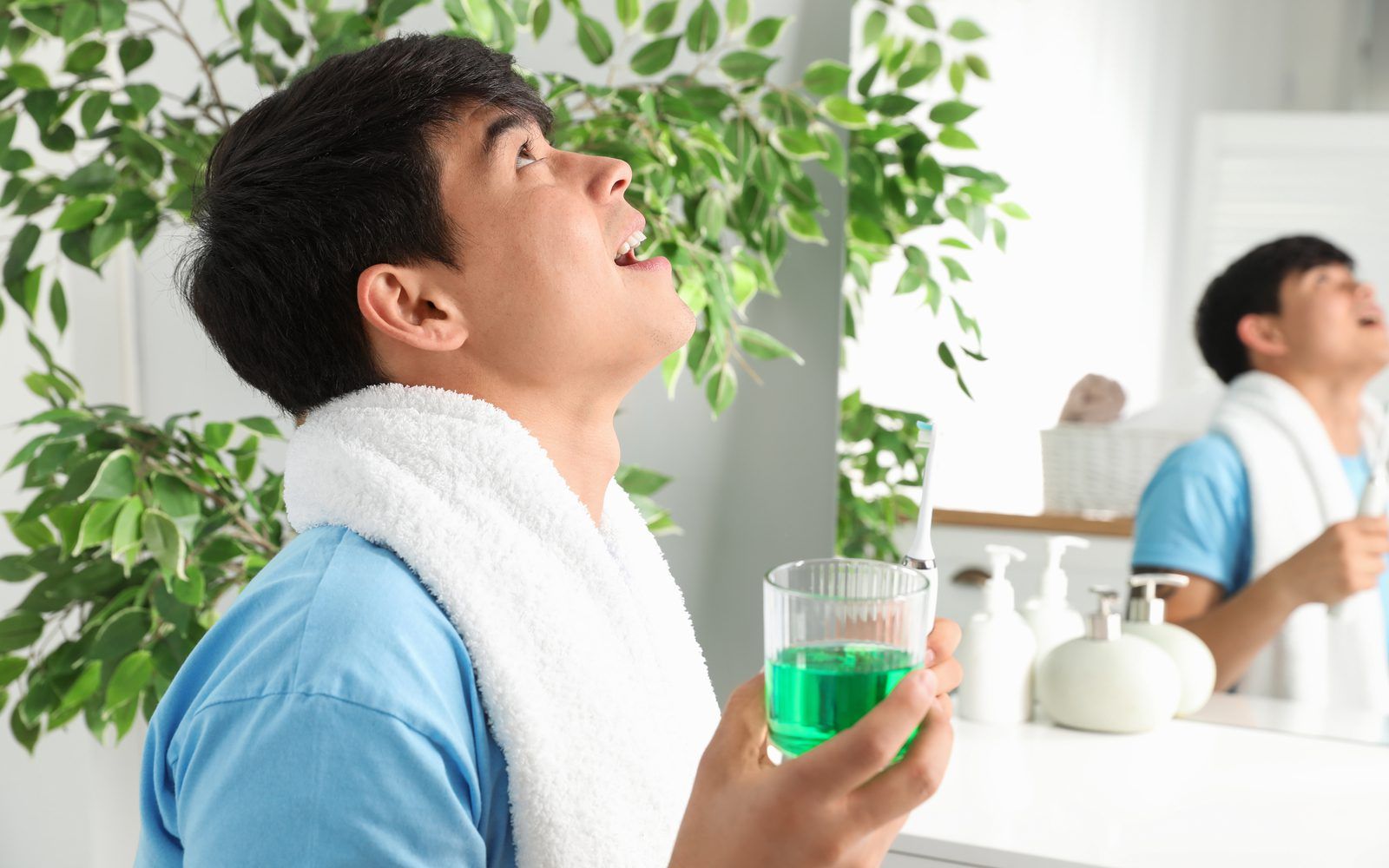Mouthwash Can Help Protect Your Oral Health

There are three steps to oral hygiene that we all hear repeatedly. Brush your teeth twice a day, floss regularly, and follow it all up with mouthwash. Brushing your teeth makes sense. After all, it’s literally brushing away plaque and food debris. Flossing gets in between your teeth and cleans out that pesky debris. But mouthwash? How much can 30 seconds to a minute of swishing around a liquid really help your oral health? At best, it just freshens your breath for a little while, right?
How Mouthwash Can Help Protect Your Oral Health
There’s actually quite a bit behind the science of mouthwash and the benefits it provides. While it definitely can help improve halitosis or bad breath, that’s just the beginning. Anti-bacterial formulas, in particular, can help reduce gingivitis and plaque. By doing so, it lowers your risk of developing tooth decay and eventual cavities. What these details mean for you and your children is that mouthwash is essential to your care. Fluoride mouthwash, in particular, can help strengthen your children’s teeth.
It can be tricky to get your children to use mouthwash at first. For some, the tingly sensation can be off-putting. For others, the taste is their deterrent. Thankfully, there are different formulations aimed at children that can address these concerns. Most patients eventually come to love the refreshing feeling using mouthwash can give you.
Some parents are hesitant to give their children mouthwash. A selection of the questions most often presented by these parents included:
- Can mouthwash prevent gingivitis and cavities?
- Is it safe to use mouthwash with a dry mouth or sensitive teeth?
- Does mouthwash have to include alcohol to be effective?
We’re going to help address these concerns by presenting a list of pros and cons associated with using mouthwash.
- It Can Freshen Bad Breath – Mouthwash can clean the remnants of our meal from our mouth. In addition, it can also battle the bacteria that cause bad breath.
- Battles Biofilm – When you use mouthwash along with brushing, you can prevent the growth of plaque and tartar. This can help reduce your susceptibility to gum disease and decay.
- Can Dehydrate – Mouthwash can actually cause dry mouth if it contains alcohol. Alcohol-free formulas are just as effective at protecting your teeth. They do it without drying out your mouth.
- Can Irritate Sores – If you have oral sores, you want to avoid mouthwash until they heal. Mouthwash can irritate them and make them sting.
Speak To Your Dentist For Further Guidance
It’s important to communicate with your pediatrician if you have concerns. They can help you understand the risks and benefits of your children using mouthwash. They can also direct you to different formulations or brands that provide child-friendly alternatives. Schedule your child’s next appointment with their pediatric dentist, and come prepared to ask questions. You may also want wish to bring along a sample of the mouthwash that you’re presently using. While you’re there, discuss your experience with it and any concerns you may have. Your concerns will be addressed and an alternative, if necessary, suggested.

